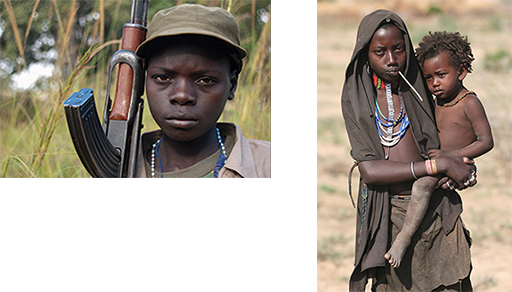1.8 African Charter on the Rights and Welfare of the Child
The African Charter on the Rights and Welfare of the Child (ACRWC) was adopted in July 1990 by the Organisation of African Unity (OAU), now the African Union (AU). The Charter came into force on 29 November 1999. Its main purpose was to adapt the rights contained in the UN Convention in order to address the particular challenges facing the African child, and also to encourage the Convention’s implementation. The content of the Charter is similar to that of the UN Convention: many of the rights are the same but it does differ in a number of ways.
The key differences between the African Charter and the UN Convention are that the Charter:
- prohibits child marriages
- insists on 18 as a minimum age of marriage
- requires that all marriages are registered in an official registry
- requires that pregnant girls have the right to continue their education
- includes a reference to protection from Apartheid
- insists that no child under 18 years can be recruited into the armed forces or take part in hostilities
- has no references to the right of a child to an adequate standard of living
- includes an Article setting out the responsibilities of children (this is not included in the UN Convention)
- includes an Article on the rights of children of imprisoned mothers (again absent from the UN Convention)
- makes more explicit reference to the family as the natural unit and basis of society.
Like the UN Convention, the African Charter also provides for an independent committee to monitor governments’ progress in implementation. It is called the African Committee on the Rights and Welfare of the Child. It has 11 members who are elected for five years, and governments must submit reports to them every three years.
Look at the two pictures below. According to the African Charter:
- Should a child be involved in armed conflict?
- Does a young mother have the right to continue with her education?

1.7 The Committee on the Rights of the Child
